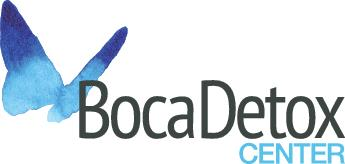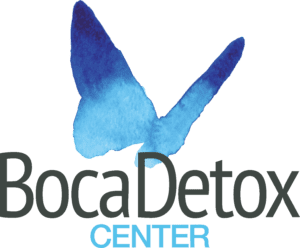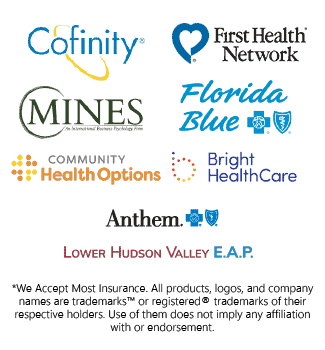Rehab programs are designed to help individuals struggling with substance misuse overcome their addiction and encourage them to commit to a healthy, sober lifestyle. Local addiction programs can have many advantages over those that require extensive travel, many of which are related to their proximity. However, there are important factors to consider when choosing any program, including its success rate, staff qualifications, and types of therapies offered.
At Boca Detox, our programs offer medical detox services for all types of substances, such as alcohol, opioids, depressants, stimulants, and hallucinogens. Contact us today to learn more about the advantages of local addiction programs and how our team of experienced professionals will guide you through the process and provide you with the necessary support and resources to achieve long-term sobriety.
Benefits of Local Addiction Programs
Local rehab programs can provide several benefits to individuals struggling with addiction. They can be more accessible, cost-effective, and offer forms of support that can be crucial for a successful recovery.
Benefits of These Programs Include:
- Access to a facility without traveling long distances, which can reduce stress.
- A sense of familiarity and comfort that can help individuals feel more relaxed.
- Greater cost-effectiveness, as it requires little travel for individuals and their families.
- Opportunities for family members to participate in the treatment process and promote a sense of belonging.
- Access to community support, including peer groups and other resources that can be helpful in the recovery process.
- Same or similar treatments, services, and amenities as those offered in long-distance programs.
Age Restrictions
Many rehab centers limit the age range of individuals who can be admitted to certain programs or services. It is important to inquire about any age restrictions before moving forward with exploring a treatment program. Most programs are geared toward adults, but some are intended for adolescents or those under 18 years of age. Others serve older adults, such as those over age 65. In many cases, one or more local recovery programs will have treatment services accessible to the individual seeking treatment.
What Is the Program’s Treatment Environment Like?
The treatment environment in addiction programs varies depending on the facility and level of care. However, most programs are designed to provide a safe and supportive setting that fosters healing and recovery. For example, inpatient programs typically provide a structured and immersive environment in addition to shared living spaces and common areas where individuals can engage in recovery-focused activities.
Facility Amenities
Many local treatment centers feature private or semi-private rooms, indoor and outdoor recreational spaces and fitness facilities, therapy rooms, meditation and relaxation rooms, and technology-free zones. These amenities are intended to provide a comfortable, low-stress, and enjoyable environment during the detox and recovery processes. Some facilities also provide nutritional education and access to a private chef, who prepares healthy meals tailored to each client’s dietary needs and preferences.
Are Family Involvement & Support Offered?
Involving family in the recovery process can bolster the individual’s support network and increase the chances of long-term recovery. Approaches that can include family involvement in treatment include family therapy sessions, educational classes, support groups, and aftercare.
At Boca Detox, we understand that addiction affects the entire family, and as such, we always encourage families to participate in their loved one’s treatment. We believe family involvement and support are critical to a successful recovery, and we aim to provide care that addresses the needs and goals of both the individual and their loved ones.
What Is the Program’s Staff-to-Patient Ratio?
A good staff-to-patient ratio in addiction treatment depends on the level of care provided. Generally, the lower the ratio, the more individualized attention and support each client can receive.
For inpatient treatment programs, which require a higher level of care, a ratio of 1:4 or 1:5 staff members to clients may be the most beneficial. For outpatient treatment programs, a ratio of 1:10 or 1:12 staff members to clients is more common.
How Does the Program Address Addiction Treatment & Co-occurring Disorders?
Rehab programs approach addiction treatment by using a combination of evidence-based therapies, such as cognitive-behavioral therapy and motivational interviewing, along with medication-assisted treatment when appropriate. The goal is to address the physical, psychological, and social aspects of addiction to help individuals achieve and maintain sobriety.
Co-occurring psychiatric disorders, such as depression and anxiety, should be integrated into addiction treatment approaches, therapeutic services, and holistic activities. These programs are intended to address both addiction and co-occurring mental health conditions simultaneously, which is essential for sustained, long-lasting sobriety and mental wellness.
At Boca Detox we specialize in dual diagnosis treatment, providing clients with a combination of evidence-based detox methods, medication-assisted treatment options, and psychiatric services.
Treatment Philosophy & Holistic Care
The philosophy or mission of individual addiction treatment programs can vary, but in general, their overall goal is to help individuals achieve and maintain long-term recovery from substance misuse and addiction. Ideally, programs should adopt a holistic approach that addresses the physical, mental, spiritual, and social aspects of addiction.
A key component of our treatment philosophy at Boca Detox is focusing on treating the whole person, not just their substance use or mental health disorder. We also believe in empowering individuals by providing them with the tools and support they need to achieve lasting recovery and improve their overall well-being.
There are several approaches to holistic care that are beneficial when combined with therapy and medication-assisted treatment.
Holistic Care in Addiction Treatment Includes:
- Nutrition and exercise.
- Mindfulness and meditation.
- Acupuncture and massage therapy.
- Yoga and other mind-body practices.
- Art and music therapy and other creative activities.
- Spiritual practices.
Levels of Care in Addiction Treatment
There are several levels of care in addiction treatment that differ in intensity, each intended to meet the needs of individuals at different stages of recovery.
Levels of Care Include:
- Medical Detox—The process of safely removing substances from an individual’s body while they are monitored and administered medications to reduce cravings and withdrawal symptoms.
- Inpatient Treatment—Intensive, 24-hour care in a residential setting, including therapy and other recovery-focused services.
- Partial Hospitalization Program (PHP)—Intensive daily treatment similar to inpatient programs, except individuals return to their homes in the evenings.
- Intensive Outpatient Program (IOP)—Frequent treatment sessions for several hours a day, several days a week.
- Outpatient Treatment (OP)—Occasional treatment once or twice a week or month for a few hours each session.
- Aftercare—Ongoing support after completing a treatment program, such as participating in therapy and support groups.
Addiction Treatment Therapy Services
Depending on their needs, there are various types of therapies and counseling used in addiction treatment to help individuals overcome their addiction and maintain long-term recovery.
Evidence-Based Therapies Available Include:
- Individualized Therapy—Used to help individuals address underlying issues that may have contributed to their addiction, such as mental health conditions.
- Motivational Interviewing—An approach that focuses on increasing a person’s motivation to change by helping them resolve any mixed feelings they might have about stopping their addictive behaviors. (1)
- Family Therapy—This therapy involves both individuals and their loved ones and helps families identify and address the dysfunctional dynamics and communication issues that may contribute to addiction.
- Group Therapy—Consists of a group of people in a supportive environment where they share their experiences and learn from others.
Dialectical Behavior Therapy (DBT)—Intended to help individuals learn coping skills, emotional regulation, and mindfulness techniques to facilitate recovery. (2)
Staff Qualifications
The qualifications of addiction treatment staff can vary depending on the type of treatment program and the level of care provided. It is important for individuals to research potential programs to ensure their staff meets the professional standards needed to provide high-quality care.
Some common addiction treatment staff qualifications include having a degree or certification in the relevant field, having obtained the necessary licenses or permits, and completing ongoing training and education. Treatment center staff include healthcare professionals such as physicians, nurses, psychologists, therapists, counselors, and peer recovery coaches who have received extensive training in addiction and related fields.
Relapse Prevention & Aftercare Support
Because recovery is a lifelong process, ongoing aftercare and relapse prevention strategies are often crucial components needed for individuals to maintain long-term sobriety.
Elements of Relapse Prevention & Aftercare Include:
- Cognitive-Behavioral Therapy (CBT)—Individuals are taught to recognize and change negative thought patterns and behaviors that lead to relapse.
- Medication-Assisted Treatment (MAT)—Involves the use of medications to help reduce cravings and withdrawal symptoms.
- Mindfulness-Based Interventions—Relapse prevention techniques that teach individuals to develop greater self-awareness and learn to manage cravings and other triggers that can lead to relapse.
12-Step Programs—These include peer groups such as Alcoholics Anonymous (AA) and Narcotics Anonymous (NA) that provide ongoing support, guidance, and accountability for individuals in recovery. (3)(4)
Contact Boca Detox Today To Learn More About Our Local Programs
Although traveling to a distant treatment center far away from the triggers associated with substance use may be appealing, this is not an ideal option for everyone. Comprehensive programs found locally often feature the same benefits as those that are long-distance, and they are often more cost-effective, accessible, and comfortably familiar.
Our detox programs are designed to help those struggling with substance misuse break free from active addiction, find ongoing treatment, and experience long-lasting sobriety. Contact us today to speak to a skilled Treatment Advisor and receive a free, no-obligation assessment. You can also learn more about our streamlined admissions process and detox programs.

Reviewed for accuracy by:
Susan Shirley
LMHC
Serving as the Inpatient Clinical Director at Immersion Recovery Center, Susan will work directly with staff members, clients, and family members to ensure the clinical program remains as effective and individualized as possible. Susan is no stranger to the fields of behavioral health and addiction. She has over 25 years of experience, working in an inpatient setting, an outpatient setting, acute stabilization and nearly all other settings in the realm of addiction recovery.





















